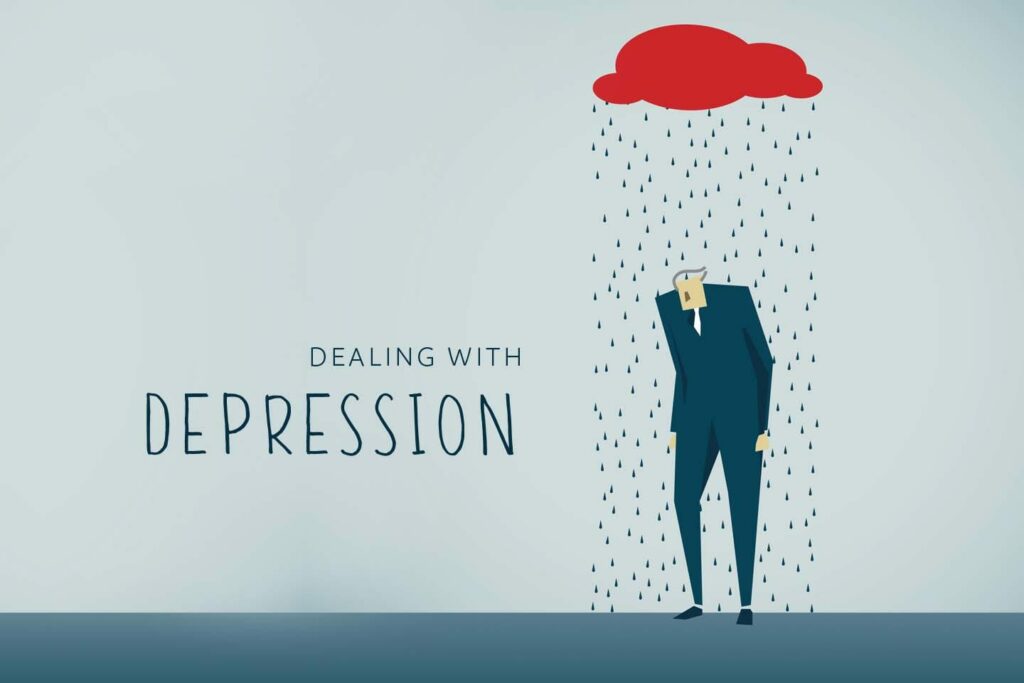Depression has become a worldwide pandemic and young adults are more affected by this than any other age group mainly due to the major life changes.

Depression among young adults has become a growing concern worldwide. The transition from adolescence to adulthood brings various challenges, including academic pressure, career uncertainty, relationship complexities, and financial stress. Coupled with the growing influence of social media and changing societal expectations, these factors contribute to the rising prevalence of depression among young adults. According to the World Health Organization (WHO), depression is the leading cause of disability globally, with young adults being particularly vulnerable.
Fortunately, numerous studies and research have explored effective ways to manage and overcome depression. This blog will delve into evidence-based strategies that can help young adults handle depression and build resilience.
No matter who is the patient, a young child, a teenager, or an adult, the doctor will do either one of the three tests mentioned below if they suspect depression.
Physical Exam: The doctor will do a physical exam and ask in-depth questions to determine the underlying cause of the depression.
Lab test: The doctor might prescribe some lab tests for the patient which may involve a test called a complete blood count, or a test to check the functioning of the thyroid.
Psychological evaluation: The doctor may even ask the patient questions about their life to get an idea of what they are dealing with and if the reason for their depression is lying in the daily routine of the patient’s life.
- Understanding Depression in Young Adults
Depression is more than just feeling sad or overwhelmed. It is a clinical condition characterized by persistent feelings of sadness, hopelessness, and loss of interest in daily activities. Common symptoms include:
– Persistent low mood or irritability
– Fatigue and low energy
– Difficulty concentrating or making decisions
– Changes in sleep patterns and appetite
– Withdrawal from social activities
– Feelings of worthlessness or guilt
If left untreated, depression can severely impact one’s academic, social, and professional life. Therefore, recognizing the signs early and taking proactive steps is essential.
- Incorporating Physical Activity into Daily Routine
Exercise has been shown to have profound effects on mental health, including reducing symptoms of depression. A landmark study published in JAMA Psychiatry found that regular physical activity is associated with a 26% reduction in the risk of developing depression. The study followed over 33,000 adults for 11 years and concluded that even small amounts of physical activity could have a protective effect.
Exercise stimulates the production of endorphins, the body’s natural mood elevators, and increases serotonin and dopamine levels, which are neurotransmitters linked to mood regulation.
Practical Tip:
Aim for at least 30 minutes of moderate-intensity exercise, such as brisk walking, cycling, or yoga, five times a week. For those who find it difficult to commit to a routine, engaging in group fitness classes or recreational sports can make physical activity more enjoyable and sustainable.
- The Role of Social Support and Connection
Social connections play a critical role in buffering against depression. According to a study published in the American Journal of Psychiatry, individuals with strong social support systems are 40% less likely to experience depressive episodes. The study emphasized that meaningful relationships provide emotional validation, reduce feelings of loneliness, and promote a sense of belonging.
Practical Tip:
Strengthen existing relationships by regularly checking in with friends and family. Consider joining support groups or engaging in social activities that align with your interests. If in-person interactions are challenging, online communities and support groups can offer a sense of connection.
- Practicing Mindfulness and Meditation
Mindfulness-based interventions, such as Mindfulness-Based Cognitive Therapy (MBCT) and meditation, have gained recognition for their effectiveness in reducing symptoms of depression. A study conducted by Dr. John D. Teasdale and colleagues at the University of Oxford found that MBCT reduced the risk of relapse by 43% in individuals with recurrent depression.
Mindfulness encourages individuals to observe their thoughts and emotions without judgment, fostering greater awareness and acceptance. This practice helps break the cycle of rumination, a common feature of depression.
Practical Tip:
Start with 5-10 minutes of daily meditation using guided meditation apps like Headspace or Calm. Incorporate mindful breathing exercises and body scans into your daily routine to enhance emotional regulation.
- Addressing Sleep Disturbances
Sleep disturbances are both a symptom and a contributing factor to depression. Poor sleep quality can exacerbate depressive symptoms, leading to a vicious cycle. A study published in the Journal of Clinical Psychiatry demonstrated that improving sleep quality through Cognitive Behavioral Therapy for Insomnia (CBT-I) significantly reduced depressive symptoms in young adults.
Practical Tip:
Establish a consistent sleep schedule by going to bed and waking up at the same time each day. Create a calming bedtime routine by avoiding screens before sleep, limiting caffeine intake in the evening, and ensuring a comfortable sleep environment.
- Developing Healthy Coping Mechanisms
Young adults often turn to unhealthy coping mechanisms, such as substance use or excessive screen time, to escape feelings of sadness or anxiety. However, research highlights that engaging in healthy coping strategies can significantly mitigate depressive symptoms.
A study conducted by Dr. Richard A. Bryant at the University of New South Wales explored the effectiveness of adaptive coping mechanisms, such as problem-solving, emotion regulation, and seeking social support, in reducing the impact of depression. The study found that young adults who developed healthy coping skills exhibited greater emotional resilience and lower rates of relapse.
Practical Tip:
Explore creative outlets such as journaling, painting, or playing music to express emotions constructively. Practice stress management techniques, such as deep breathing or progressive muscle relaxation, to build emotional resilience.
Depression in young adults is a complex condition that requires a multifaceted approach for effective management. By incorporating evidence-based strategies such as CBT, regular exercise, mindfulness, and building strong social connections, young adults can significantly reduce the impact of depression. Recognizing when professional help is needed and taking proactive steps to seek support is essential for long-term mental wellness. The journey toward overcoming depression is not linear, but with persistence, support, and self-care, young adults can regain control of their lives and cultivate emotional resilience for a healthier future.



















